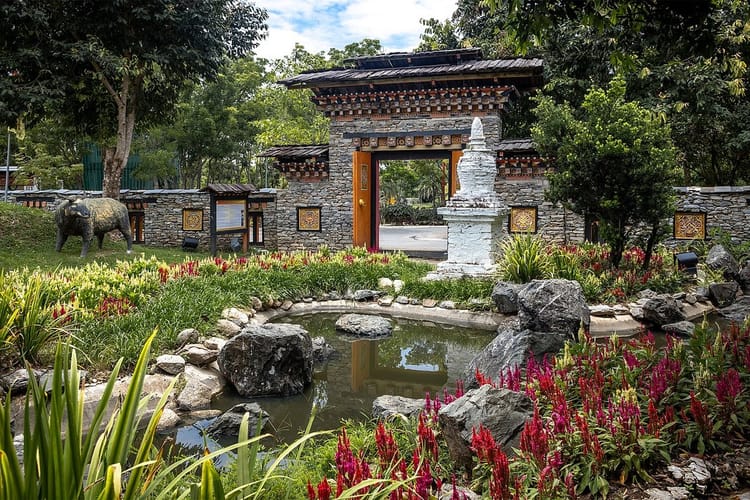The Healing Power of Nature

Research demonstrates the incredible benefits of spending time outdoors for both our bodies and minds. In Japan, "shinrin-yoku" or forest bathing is a popular stress-relief practice. We often play videos of forest bathing to create a calm atmosphere in our office. Rambalac is our favorite content-creator right now.
Encouraging children to connect with nature is advocated in Richard Louv's bestselling book, "Last Child in the Woods". In the video above, we witnessed three schoolchildren sprinting down the bamboo forest trail.

Forest Bathing can be done at the pace of your choosing. Match your energy to the energy you feel from mother nature. Please be respectful to others as they refresh their spirit through the immersion of nature.
Park Poverty
Despite the universally acknowledged feel-good factor of being in nature (who doesn't love a good hike?), many Americans lack easy access to natural spaces.
Shockingly, according to the Trust for Public Land, 100 million Americans don't have a park within a 10-minute walk from their homes.
Even the few parks available are often dominated by programmed activities and lack natural settings. Many parks in the Western United States are prime examples, with heavily irrigated lawns that aren't native to the region—we paved paradise and put up a parking lot.
Native Gardens can Help
Additionally, gardening has been proven to positively impact mental health. An old post on the Gardening subreddit got me thinking about this.
Native plant gardens are not only easy to cultivate at home but also attract local wildlife, providing food, nesting materials, and shelter.
The sense of closeness to nature that native plant gardens bring right to your doorstep, coupled with the therapeutic benefits of gardening and yard work, explain why they are such effective stress relievers.

This text was rewritten with assistance from ChatGPT, an AI language model. The original post can be found here.





